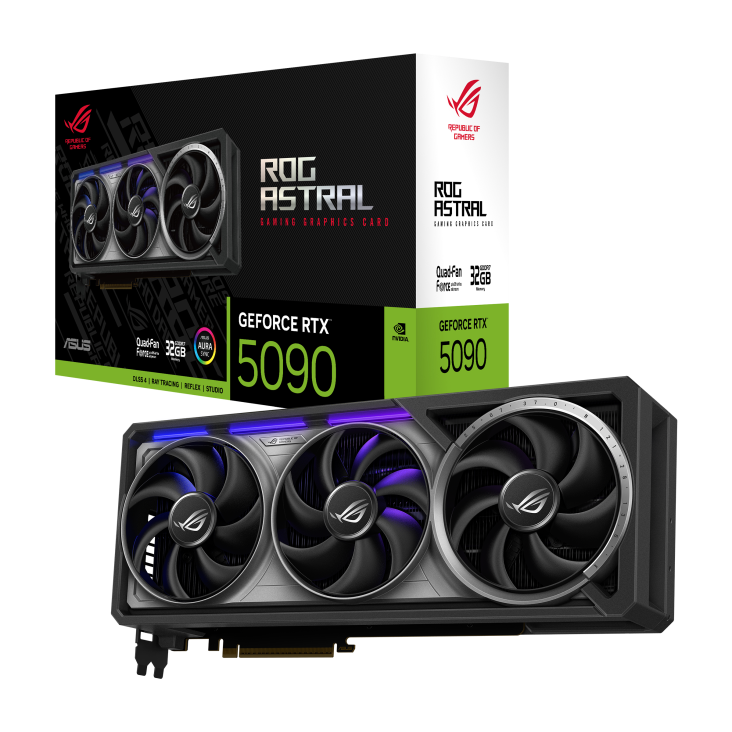Nvidia RTX 5090 Review: The Future of Gaming Graphics? – Nvidia RTX 5090 Review The Future of Gaming Graphics? ushers us into the next era of gaming technology, where cutting-edge graphics and immersive experiences redefine what gamers can expect. With the gaming landscape continually evolving, the RTX 5090 promises to push boundaries and deliver unparalleled performance, making it essential for enthusiasts and casual players alike. In this review, we’ll delve into the features, performance metrics, and overall impact of this groundbreaking graphics card on the gaming community.
In today’s fast-paced world, technology has seamlessly integrated into our daily lives, making tasks easier and more efficient. One of the most fascinating trends in the tech industry is the rise of smart home technology. From smart speakers to automated lighting systems, these devices are not just gadgets; they are transforming the way we live. In this blog post, we’ll explore the evolution of smart home technology, the benefits it offers, and what the future may hold.
A Brief History of Smart Home Technology
The concept of smart homes isn’t as new as you might think. The idea dates back to the 1960s when the first home automation systems were developed. However, it wasn’t until the advent of the Internet and wireless technology that smart home devices became more accessible to the general public.
Fast forward to the early 2010s, and we saw a significant surge in smart home products entering the market. The launch of devices like the Nest Thermostat in 2011 and the Philips Hue smart lighting system in 2012 marked a turning point. Companies began to realize that consumers were not just interested in convenience; they were also looking for energy-efficient solutions that could save them money in the long run.
What is Smart Home Technology?
Smart home technology refers to a suite of devices that connect to the internet and can be controlled remotely. These devices can encompass a range of functions, from controlling your home’s temperature to managing security systems. They typically integrate with a central hub, which allows users to control all of their smart devices through a single interface, often via a smartphone app or voice commands.
Benefits of Smart Home Technology
One of the most appealing aspects of smart home technology is its myriad benefits. Let’s dive into some of the key advantages:
1. Enhanced Convenience
Imagine coming home after a long day at work to a house that has already adjusted the temperature to your liking, the lights are dimmed, and your favorite playlist is playing. Smart home devices can be programmed to follow your schedule, making everyday tasks so much easier and more enjoyable.
2. Energy Efficiency
Smart home technology isn’t just about convenience; it’s also about saving energy. Devices like smart thermostats can learn your habits and adjust the heating and cooling of your home accordingly. This intelligent management can lead to significant reductions in energy bills, making it an appealing option for budget-conscious consumers.

3. Increased Security
Security is a top concern for many homeowners, and smart home technology offers innovative solutions. Smart security cameras, doorbells, and locks provide users with the ability to monitor their homes in real-time from anywhere in the world. These devices often come with motion detection and alert systems, ensuring that homeowners stay informed about any unusual activity.
4. Seamless Integration, Nvidia RTX 5090 Review: The Future of Gaming Graphics?
Most smart home devices are designed to work together, creating a unified ecosystem. Whether you want to turn off the lights while you’re away or lock your doors with a simple voice command, the ability to integrate various devices makes life easier and more comfortable.
Popular Smart Home Devices: Nvidia RTX 5090 Review: The Future Of Gaming Graphics?
The market is flooded with smart home devices, each offering unique features and functionalities. Here are some of the most popular categories:
Smart Speakers
Smart speakers, such as the Amazon Echo and Google Nest, serve as the central hub for many smart home systems. They allow users to control other smart devices using voice commands, play music, get weather updates, and even manage their calendars.
Smart Thermostats
Smart thermostats, like the Nest and Ecobee, learn your heating and cooling preferences over time and adjust themselves accordingly. They can also provide energy reports, helping users make informed decisions about their energy usage.
Smart Lighting
Smart lighting options, such as Philips Hue or LIFX, allow users to customize their home’s ambiance. You can adjust the brightness, change colors, or set schedules to have lights turn on and off automatically.
Smart Security Systems
Smart security systems, including Ring and Arlo, provide homeowners with peace of mind. With features like 24/7 monitoring and mobile alerts, users can keep an eye on their properties even when they’re away.
Challenges and Considerations
Despite the numerous benefits, there are also challenges associated with smart home technology. Privacy and security are significant concerns, as many devices collect data and may be vulnerable to hacking. Additionally, consumers must consider compatibility between devices, as not all products work together seamlessly.
It’s crucial for consumers to research their options and choose devices from reputable companies that prioritize security and privacy.
The Future of Smart Homes
As technology continues to evolve, so too will smart home devices. We can expect more advanced artificial intelligence integration, improving automation and predictive capabilities. Furthermore, the rise of the Internet of Things (IoT) will connect more devices, creating a more sophisticated and interconnected living experience.
Moreover, as sustainability becomes a priority for many, smart home technology will increasingly focus on energy efficiency and eco-friendly practices. We may see innovations that allow homeowners to monitor their carbon footprints and make more sustainable choices.
Conclusion
In conclusion, smart home technology is not just a passing trend; it is a revolution in how we interact with our living spaces. With its convenience, energy efficiency, and enhanced security features, it’s no wonder that homeowners are embracing these advancements. While there are challenges to consider, the benefits far outweigh the drawbacks. As we look toward the future, it’s exciting to think about the endless possibilities that smart home technology will bring.
Are you ready to embrace the smart home revolution? With the right devices, your home is on the brink of becoming a more comfortable, secure, and energy-efficient sanctuary.
FAQ Corner
What is the expected release date for the Nvidia RTX 5090?
The Nvidia RTX 5090 is anticipated to be released in late 2024, although official dates may vary.
How much will the Nvidia RTX 5090 cost?
While exact pricing is not confirmed, estimates suggest the RTX 5090 will be priced around $1,500 to $2,000 based on previous models.
What improvements does the RTX 5090 offer over the RTX 4080?
The RTX 5090 is expected to provide significant enhancements in ray tracing capabilities, AI performance, and overall power efficiency compared to the RTX 4080.
Is the RTX 5090 suitable for 4K gaming?
Yes, the RTX 5090 is designed to handle 4K gaming with high frame rates and settings, making it a top choice for enthusiasts.
Will the RTX 5090 support VR gaming?
Absolutely, the RTX 5090 will support VR gaming, providing an immersive experience with its advanced graphics capabilities.



